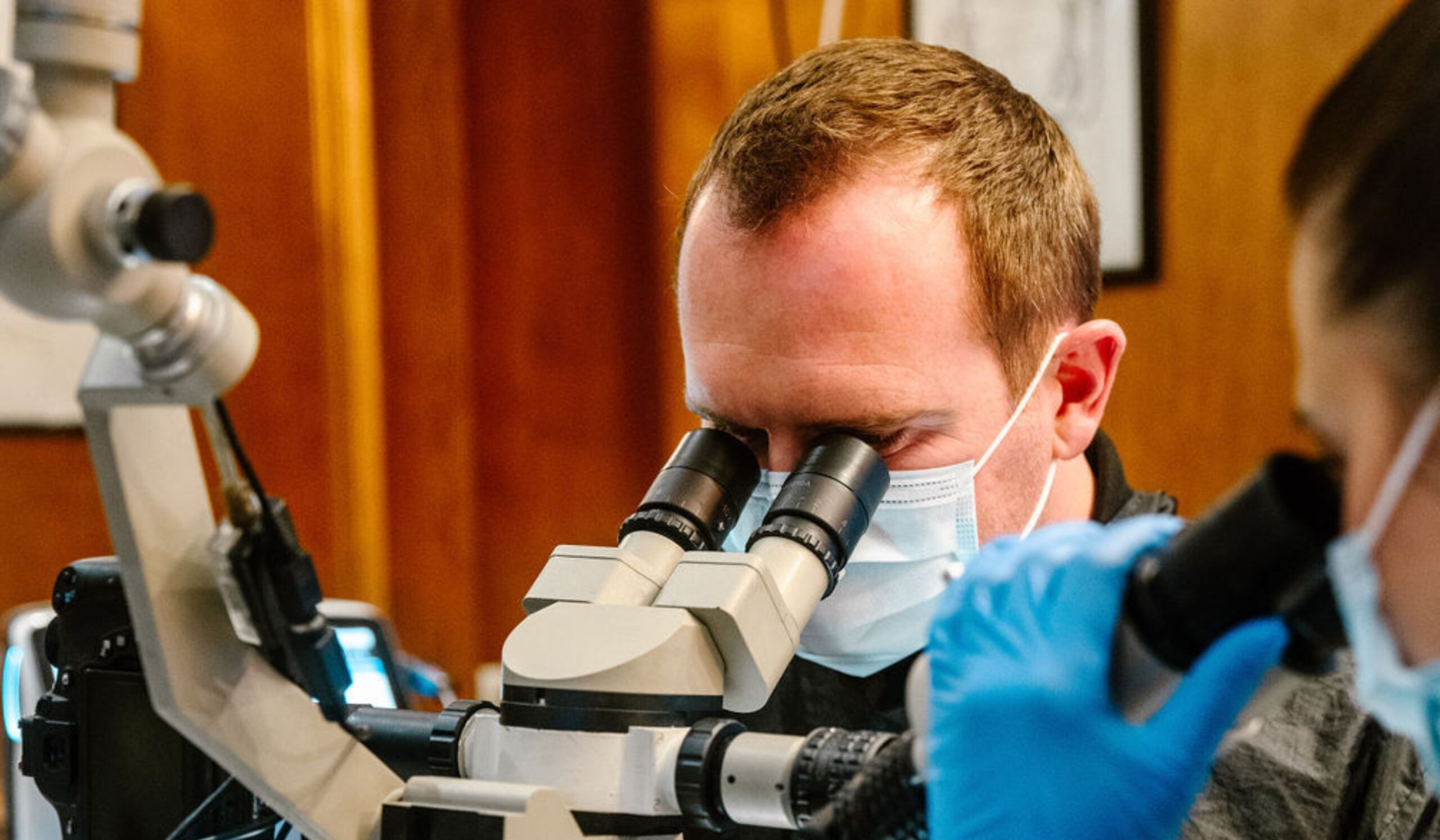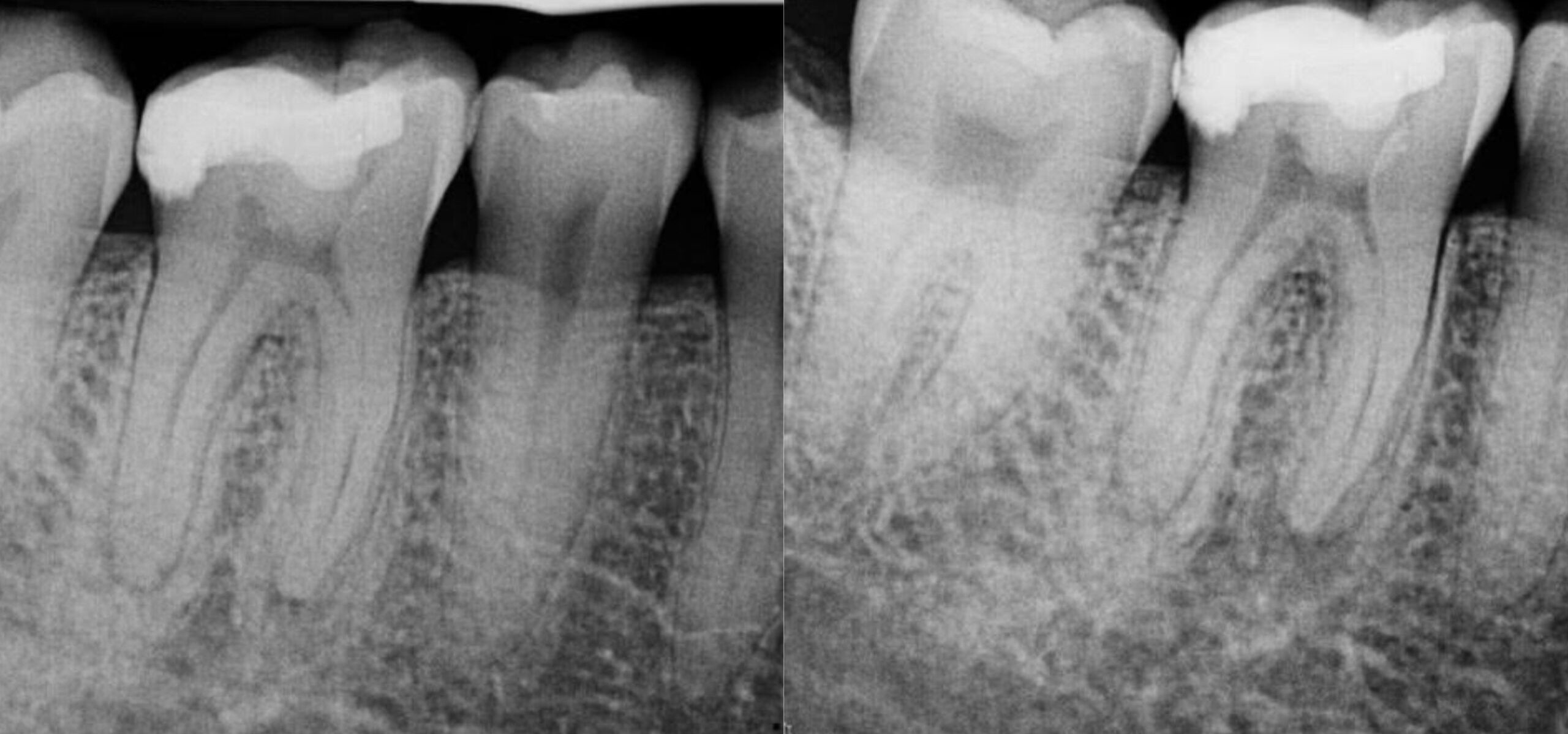 Clinical situation:
Clinical situation:
What happens when a case of irreversible pulpitis challenges the status quo? In this feature, I’ll explore a clinical case where traditional root canal treatment took a backseat to vital pulp therapy (VPT). With a blend of careful diagnostics and evidence-based decision-making, this case shows how modern techniques and materials are reshaping our approach to endodontic care.
A 31-year-old female was referred by her dentist for assessment and treatment of the LR6 which had been associated with severe pain on temperature that lingered. The LR6 was restored with a satisfactory DO composite restoration. There was no tenderness to palpation, but there was some mild tenderness to buccal percussion. The tooth responded to temperature vitality testing and the feeling lingered for a while following the cold air. There was no deep pocketing or bleeding on probing.
Pre-op radiograph

CBCT scan analysis showed the depth of the restoration to be particularly close to the mesial pulp horn. It wasn’t very many miles away from the distal one either. Significant widening of the PDL spaces was present below both mesial and distal root apices with it being close to a 2 mm diameter radiolucency below the mesial root apex.
The clinical and radiographic assessment led to a diagnosis of moderate to severe pulpitis with possibly some pulp necrosis and chronic periapical periodontitis for the LR6 due to the depth of the restoration.
The management of irreversible pulpitis traditionally involves root canal treatment; however, there is growing interest in vital pulp therapy (VPT) as a less invasive alternative. Indirect pulp capping and vital pulp therapy, including partial and full pulpotomy, are considered in this context.
Indirect pulp capping is generally not indicated for irreversible pulpitis due to the extent of pulpal inflammation typically present in such cases. The literature suggests that vital pulp therapy, particularly pulpotomy, may be a viable option for managing irreversible pulpitis[1]. This clinical case was treated with a partial pulpotomy.

According to a systematic review by Louzada et al. (2024), both partial and full pulpotomy have shown high clinical success rates in managing deep caries in vital permanent teeth with irreversible pulpitis, with success rates of 90% for full pulpotomy and 83% for partial pulpotomy at one year.[2] This challenges the traditional approach of root canal treatment for irreversible pulpitis.
Furthermore, Duncan et al. (2023) highlight that pulpotomy, as a minimally invasive treatment, is gaining traction due to advancements in materials and techniques, such as the use of hydraulic calcium silicate cements, which have improved the outcomes of these procedures.[3] However, the evidence base is still evolving, and there is a need for more high-quality randomised controlled trials to establish definitive guidelines.
In summary, while indirect pulp capping is not typically recommended for irreversible pulpitis, vital pulp therapy, particularly pulpotomy, is emerging as a promising alternative, supported by recent studies indicating favourable outcomes. However, further research is necessary to solidify these findings and guide clinical practice.
This clinical case has remained successful after 18 months. The apical radiolucency is resolving, and the tooth remains responsive to sensibility testing.

Written by Ian Blewett
References:
[1] Cushley S, Duncan HF, Lappin MJ, Tomson PL, Lundy FT, Cooper P, Clarke M, El Karim IA. Pulpotomy for mature carious teeth with symptoms of irreversible pulpitis: A systematic review. J Dent. 2019 Sep;88:103158. doi: 10.1016/j.jdent.2019.06.005. Epub 2019 Jun 20. PMID: 31229496.
[2] Louzada LM, Hildebrand H, Neuhaus KW, Duncan HF. The Effectiveness of Partial Pulpotomy Compared With Full Pulpotomy in Managing Deep Caries in Vital Permanent Teeth With a Diagnosis of Non-Traumatic Pulpitis. International Endodontic Journal. 2024;. doi:10.1111/iej.14149.
[3] Duncan HF, El-Karim I, Dummer PMH, Whitworth J, Nagendrababu V. Factors That Influence the Outcome of Pulpotomy in Permanent Teeth. International Endodontic Journal. 2023;56 Suppl 2:62-81. doi:10.1111/iej.13866.